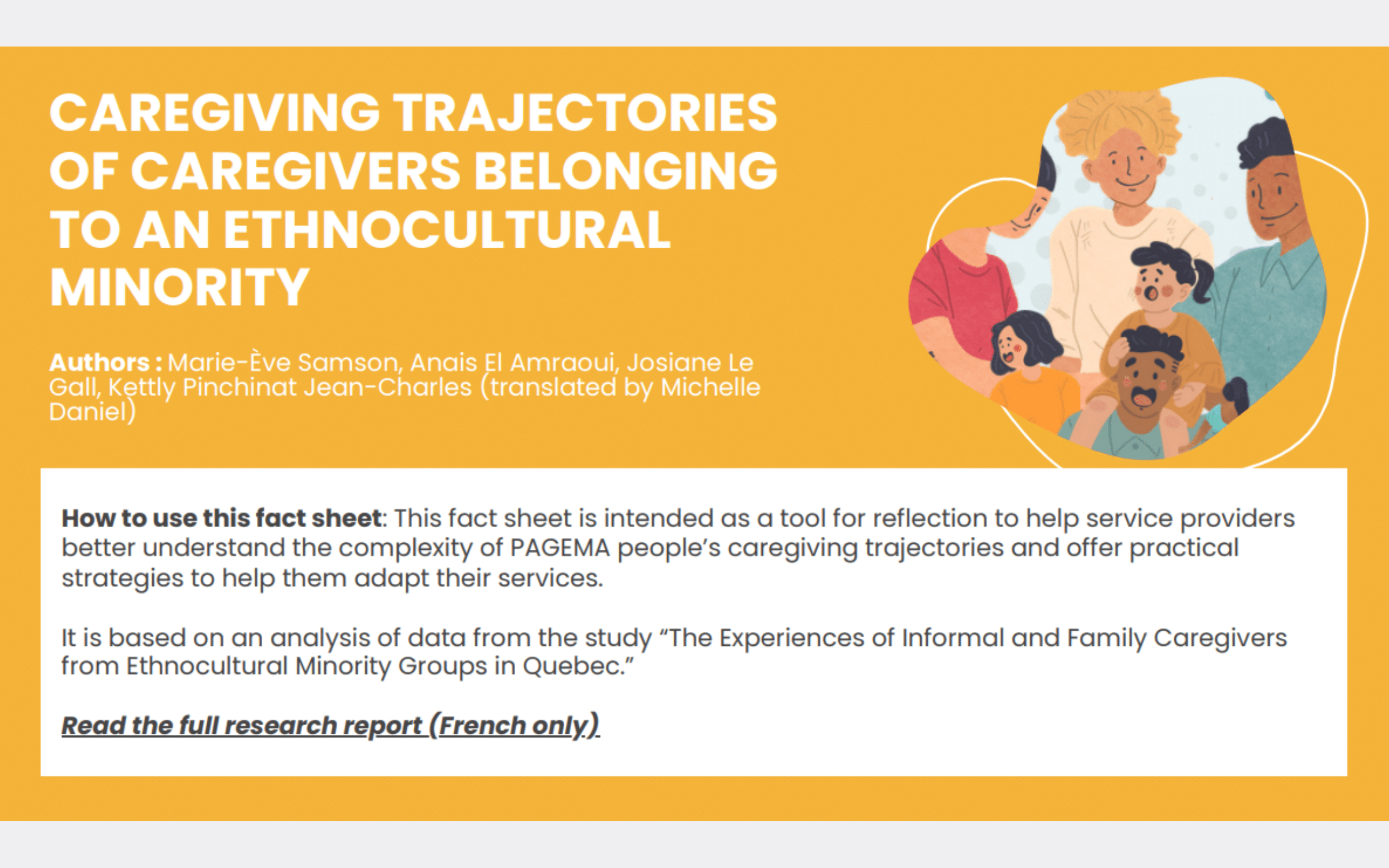This fact sheet (6 pages) is intended as a tool for reflection to help service providers better understand the complexity of caregiver trajectories among people from ethnocultural and linguistic minorities (PAGEMA caregivers) in Quebec.
It presents a case study about one such caregiver, Julian, to illustrate the needs, impacts, facilitators and barriers that can influence the caregiving trajectories of PAGEMA individuals. Practical suggestions for intervention are also proposed.
The fact sheet is based on data from the SHERPA University Institute study (in French), Les expériences de personnes appartenant à un groupe ethnoculturel minoritaire qui prennent soin d’un·e proche au Québec.
Like to know more?
See the publication on the organization’s website to access other SHERPA projects about ethnocultural and linguistic minority caregivers in Quebec.



